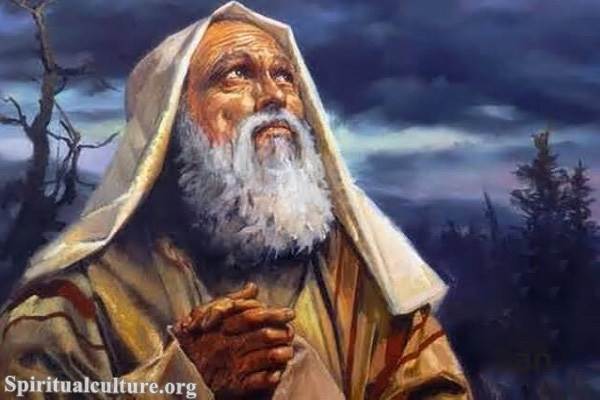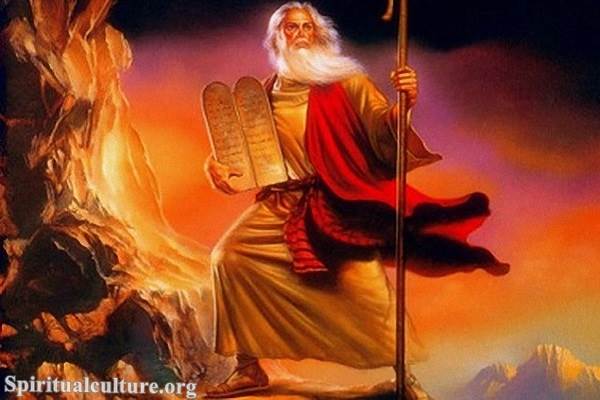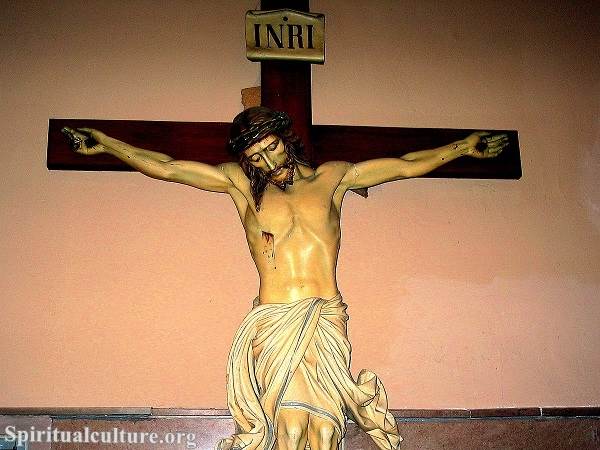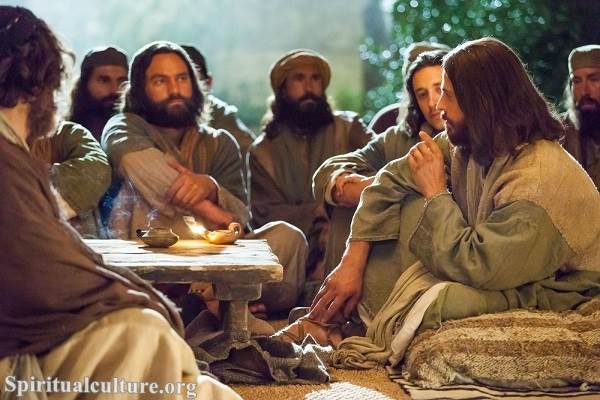Who were the founders of Judaism? This is a question that everyone who learns about this religion wants to know.
Abraham – founder of Judaism
Abraham is considered the founder of Judaism as well as the patriarch of the Jewish people. According to the Hebrew Bible, God called Abraham to leave his home in Ur and travel to a land that God would show him, which became the land of Canaan. Abraham is known for his faith in God and his willingness to follow God’s commands, including his willingness to sacrifice his son Isaac at God’s request. Abraham’s story is told in the book of Genesis in the Hebrew Bible, and he is considered a key figure in Judaism, Christianity, and Islam.

Abraham’s obedience to God and his faith in God’s promise to make him the father of a great nation are central to the story of Abraham in the Hebrew Bible. Abraham is seen as a model of faith and obedience, and his story is told as an example of how God rewards those who trust in him.
According to the Bible, God made a covenant with Abraham, promising to make him the father of a great nation and to give him and his descendants the land of Canaan as an inheritance. Abraham’s descendants eventually became the Israelites, and the land of Canaan became the land of Israel.
Abraham is also considered the father of the three major monotheistic religions: Judaism, Christianity, and Islam. In Judaism, he is seen as the first Hebrew and the first Jew, and his story is told as a foundational part of the Jewish faith. In Christianity, Abraham is considered a spiritual ancestor of Jesus, and his story is told in the New Testament. In Islam, Abraham is considered a prophet and a key figure in the Islamic faith.
Contributors to the development of Judaism
Moses
Moses was a significant figure in the Abrahamic religions of Judaism, Christianity, and Islam. According to the Bible, Moses was a Hebrew prophet who God chose to lead the Israelites out of slavery in Egypt and into the promised land of Canaan. Moses is known for receiving the Ten Commandments from God and leading the Israelites through the wilderness for 40 years. He is also credited with writing the first five books of the Hebrew Bible, also known as the Torah.
Moses was born in ancient Egypt during a time when the Pharaohs enslaved the Hebrews. According to the biblical account, Moses’ mother placed him in a basket and set him afloat on the Nile River in an effort to save him from the Pharaoh’s decree that all male Hebrew children be killed. He was discovered by the Pharaoh’s daughter, who took him in and raised him as her own.

As an adult, Moses confronted the Pharaoh and demanded that he let the Israelites go. When the Pharaoh refused, God sent a series of plagues upon the land. Eventually, the Pharaoh relented and allowed the Israelites to leave. However, he changed his mind and pursued them with his army. God parted the Red Sea, allowing the Israelites to escape and the Pharaoh’s army to be drowned.
After leading the Israelites through the wilderness for 40 years, Moses received the Ten Commandments from God on Mount Sinai. He then led the Israelites to the edge of the promised land but was not allowed to enter it himself because he had disobeyed God’s instructions at a crucial moment. Moses is revered as a prophet by Jews, Christians, and Muslims, and his story is an important part of the religious texts of these faiths.
Isaac
In Judaism, Isaac is considered to be one of the three Patriarchs of the Jewish people, along with his father, Abraham, and his son Jacob. Isaac is an important figure in the Abrahamic religions, including Judaism, Christianity, and Islam, as he is considered to be a patriarch of the Israelites.
According to the biblical account, Isaac was the son of Abraham and Sarah and was born when Abraham was 100 years old, and Sarah was 90. Isaac’s birth was seen as a miraculous event, as Sarah was well beyond childbearing age.
Isaac is most well-known for his role in the Binding of Isaac, in which God commanded Abraham to sacrifice his son to test his faith. Abraham willingly obeyed God’s command and took Isaac to be sacrificed, but God provided a ram to be sacrificed in Isaac’s place at the last minute. This event is seen as a foreshadowing of the ultimate sacrifice of Jesus in Christianity.
Isaac is also known for his role in the story of the well of Beer-lahai-roi, where he encountered his future wife, Rebekah. Isaac married Rebekah and had two sons, Esau and Jacob, who would later become the patriarchs of two rival nations: Edom and Israel.
Isaac is revered as a Judaism patriarch and seen as a symbol of faith and obedience to God. His story is told and retold in the Hebrew Bible and is an important part of Jewish tradition and heritage.
Jacob
Jacob, also known as Israel, is an important figure in the Hebrew Bible and the Islamic tradition. He is the son of Isaac and Rebekah, the grandson of Abraham and Sarah, and the father of twelve sons who would go on to become the twelve tribes of Israel.
Jacob is known for his trickery and cunning, as well as for his strong faith in God. One of Jacob’s most famous stories is how he tricked his brother Esau out of his birthright and received the firstborn’s blessing. Jacob later fled from his home after being threatened by his brother and had a series of encounters with God during his journey. These encounters included a dream in which he saw a ladder connecting heaven and earth and a wrestling match with an angel.
Jacob eventually returned home and reconciled with his brother, and he went on to have twelve sons with his two wives, Leah and Rachel. His descendants, the Israelites, became a great nation and played a significant role in the history of the ancient Near East.
Aaron
Aaron was the older brother of Moses and a key figure in the Biblical story of the Israelites. According to the Hebrew Bible, Aaron was the first high priest of the Israelites. He played a central role in the events that led to the Israelites’ liberation from slavery in Egypt.
Aaron was born in Egypt, the son of Amram and Jochebed, who were descendants of Levi, one of the 12 tribes of Israel. Aaron’s father was a leader of the Israelites, and Aaron grew up to be a respected member of the community. When his younger brother Moses fled Egypt after killing an Egyptian guard, Aaron remained behind and took on a leadership role among the Israelites.
After the Israelites fled from Egypt, Aaron played a key role in the events that occurred during their journey through the wilderness. He served as a spokesman for Moses and helped communicate God’s word to the people. He also helped to perform miracles, such as turning his staff into a snake and turning water into blood.
In addition to his role as a leader and prophet, Aaron was also the first high priest of the Israelites. He was responsible for leading the people in worship and performing important religious ceremonies, such as the consecration of the Tabernacle and the offering of sacrifices.
Aaron’s importance in Judaism is enduring, and he is remembered as a key figure in the history of the Israelites and an important religious figure.
King David
King David is a central figure in the history of Judaism and is revered as a warrior, king, and ancestor of the Messiah in the Hebrew Bible (Old Testament). He is described as the second king of the United Kingdom of Israel and Judah, succeeding Saul and preceding Solomon.
David was born in Bethlehem and was the youngest of eight sons of Jesse. He was a shepherd before being chosen by God to be the king of Israel. According to the Bible, David was a brave and skilled warrior who fought against the Philistines and other enemies of the Israelites. He also conquered Jerusalem and made it the capital of the kingdom.
David is known for his piety and devotion to God and is credited with establishing a centralized monarchy in Israel. He is also credited with writing many of the Psalms, which are a collection of religious songs and prayers in the Bible.
David’s reign is considered a time of great prosperity and peace in the kingdom, and he is remembered as a wise and just ruler. However, he is also remembered for his moral failings, including his affair with Bathsheba and the resulting murder of her husband, Uriah. Despite these flaws, David is an important figure in Judaism and is revered as a hero and an ancestor of the Messiah.
Solomon
King Solomon, also known as Solomon ben David, was the third king of Israel and the son of King David. Judaism revered him for his wisdom, wealth, and building projects, including constructing the First Temple in Jerusalem. According to the Hebrew Bible, Solomon was known for his wisdom, wealth, and building projects, and he was famous for his ability to make wise and fair judgments. He is also remembered for his many wives and concubines, eventually leading to his downfall. Despite his successes, Solomon’s rule was not without controversy and conflict, and his kingdom eventually split into two after his death. He is an important figure in Judaism and is mentioned in various Jewish texts, including the Talmud and the Midrash.
The Hebrew prophets
The Hebrew prophets Isaiah, Jeremiah, and Ezekiel, played important roles in the history of Judaism, as did the priests Ezra and Nehemiah.
Isaiah
Isaiah is considered one of the major Jewish prophets, and his prophecies are recorded in the Hebrew Bible (Tanakh). He was active in the 8th century BCE and lived in the Kingdom of Judah. Isaiah is known for his messages of judgment and hope, and his prophecies often focused on the sins of the Israelites and the consequences of their actions. However, he also spoke of a future time of peace and prosperity, when the people of Israel would be restored to their land and their relationship with God would be reconciled. His prophecies are still studied and revered by Jews today.
Jeremiah
Jeremiah is considered one of the major prophets in Judaism. According to tradition, he was a descendant of the priestly family of Abiathar. He was born in the city of Anathoth, located in the land of Benjamin, which is part of present-day Israel.
Jeremiah was active as a prophet during the reign of several kings of Judah, including Josiah, Jehoiakim, and Zedekiah. His ministry spanned a period of over 40 years, from the 13th year of King Josiah (628/627 BCE) until the fall of Jerusalem to the Babylonians in 586 BCE.
Jeremiah is known for his prophecies of judgment and warning of the coming destruction of Jerusalem and the temple, as well as his calls for repentance and the need for the people of Judah to return to the ways of God. He was also a strong advocate for social justice and spoke out against the injustice and corruption of the ruling classes.
Despite being rejected and persecuted by many of his contemporaries, Jeremiah remained faithful to his calling as a prophet and continued to speak out against the sins of the people and the consequences that would follow if they did not turn from their ways. His writings, which include the Book of Jeremiah in the Hebrew Bible, have had a lasting impact on Judaism and continue to be studied and revered by Jews today.
Ezekiel
Ezekiel was a prophet in Judaism who lived in the 6th century BCE. He was born in Jerusalem and was a contemporary of the prophets Jeremiah, Isaiah, and Daniel. According to the Bible, God called Ezekiel to be a prophet while he was living in exile in Babylon. He received many visions from God and wrote them down in the book of Ezekiel, which is part of the Hebrew Bible.
Ezekiel’s prophecies often focused on the coming judgment of God on the people of Israel and the nations around them. He also spoke about the rebuilding of the Temple in Jerusalem and the restoration of the kingdom of Israel. Many of his prophecies have been interpreted as being fulfilled in the later history of the Jews, including the return of the Jews from exile and the rebuilding of the Temple in Jerusalem.
Ezekiel is considered one of the major Jewish prophets, along with Isaiah, Jeremiah, and Daniel. His book is considered one of the prophetic books of the Hebrew Bible and is studied and revered by Jews today.
The priests Ezra
Ezra was a Jewish scribe and priest who lived in the 5th century BCE. He is mentioned in the Hebrew Bible and is considered one of the leading figures of the Jewish community in the period following the return of the Jews to Jerusalem from exile in Babylon. According to the Bible, Ezra led a group of Jews back to Jerusalem. He worked to rebuild the city and its temple and establish a system of governance and laws for the Jewish community. He is also credited with helping to restore the use of the Hebrew language and the study of the Torah, and he played a key role in developing Judaism as a religion.
The priests Nehemiah
Nehemiah was a Jewish leader who played a key role in rebuilding the city of Jerusalem and rebuilding the city’s walls in the 5th century BCE. He was a contemporary of Ezra, another important Jewish leader of the time. Nehemiah was a cupbearer to the Persian king Artaxerxes I. He secured permission and resources to return to Jerusalem and led the rebuilding efforts through his position at the royal court. According to the biblical book of Nehemiah, he led the rebuilding of the walls of Jerusalem in just 52 days, despite significant opposition and difficulties. Nehemiah is considered a hero in Jewish tradition for his leadership and efforts to rebuild and strengthen the Jewish community in Jerusalem.
Judaism is a complex and multifaceted religion with a long and rich history. Religion has evolved and changed over time, but it has always been based on the teachings and practices of the Hebrew prophets and the covenant between God and the Jewish people. Whether you are interested in learning about the history of Judaism or exploring its beliefs and practices, there is much to discover and learn about this fascinating religion.



